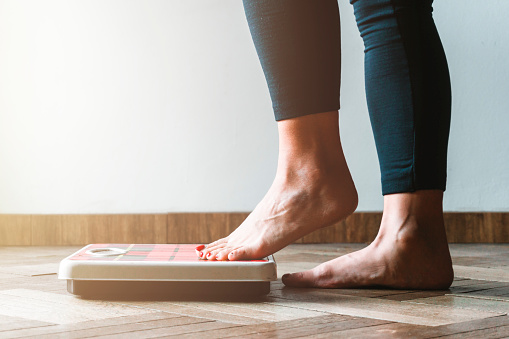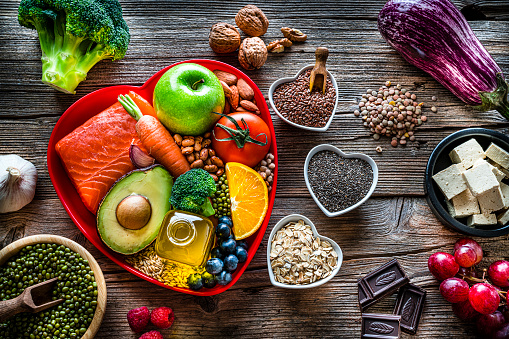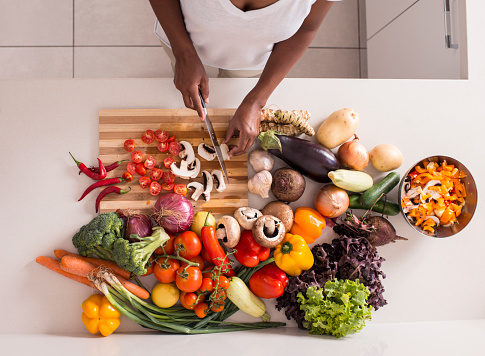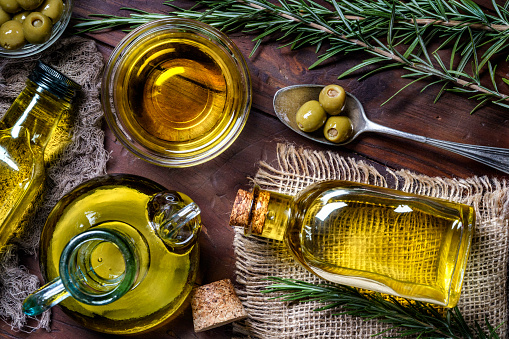What are the macros and calories for the ketogenic diet? I'm going to break it all down for you so you can also get amazing results with keto. I’ll also share the details on the nine specific blood markers to request from your doctor to determine if keto is working for you.
As the best selling author of four books & founder of Keto Kamp where our mission is to educate and to inspire 1 billion people, it is my duty to help you succeed in your health goals.
I'm super grateful you chose this article today. It's going to help you out on your ketogenic journey.
Previously, in this ten-part series on how to master keto, we talked about the very important details around the history of Keto and nuances that define clean keto foods & dirty keto foods and how to deal with common symptoms of keto - like the Keto flu, brain fog and fatigue. So if you haven’t already caught up on the previous articles, I highly suggest you do.
Now we’re going to break down the macros, the calories and the structure for you to get those results you want on keto. As you know, when you go on Dr. Google and you type in “what are the macros for the keto diet?” or “what is the keto diet?” you'll get over 100 million results! That can cause a lot of confusion.
The general percentages for your macros is - 85% of your total calories come from fat, 15% from protein and about 5% from carbohydrates. The issue with just following percentages is that the body is more sophisticated than just calories in versus calories out, which we’re going to talk a little bit more about.
Here's what I want you to understand. You can get your fat and calories from that ketogenic meal in front of you or you can get your fat and calories from your body fat. That's right! The goal here is to teach the body to start burning its own body fat. Keto is not about eating a bunch of bacon and fat and cheese. It's about going low carb enough for the body to start burning its own body fat, allowing your liver to produce ketones to fuel the brain.
It’s important to note, that you actually need to increase your protein intake in the first 30 to 60 days on keto. When you do this, not only is it going to help prevent any muscle loss but protein is unique because it activates satiety hormones and chemicals such as cholecystokinin, leptin, glucagon-like peptide and peptide YY.
All you need to know Keto Kamper, is that this helps you feel satiated & full. This prevents you from snacking. This prevents you from raising insulin in between your meals. That's what we want. So it's very important to get 40 to 50 grams of protein at every keto meal that you eat, especially the first 30 to 60 days.
This is exactly what I teach in the Keto Kamp Academy. So increase the protein, increase the healthy fats and that's going to help you feel satiated & full.
What are the best foods to eat on the ketogenic diet? Some of my favorite protein sources are grass fed grass finished beef, lamb, pastured eggs, bison and wild caught fish. I have a whole list for you in a previous article I did in this series; it's called the Keto Kamp Blueprint, and you can download it for free here.
But let's talk a little bit about the amount of calories you should you have on keto. The human body is not a bank account. It's not a math equation. It's not a calculator. The human body is a complex chemistry lab and we need to start treating it as such.
Do calories matter? Yes. Are they important? No. They are a huge distraction. To what really matters. What really matters is cell metabolism, hormones and reducing inflammation. All the tips I'm teaching you in this article and in all the articles and videos on my keto Kamp YouTube channel.
Food can upgrade or downgrade your biological software. Every bite determines a signal inside of your body. For example, you can eat 1000 calories of brownies versus 1000 calories of a kale salmon salad.
The person who has 1000 calories worth of brownies, they're going to store fat. They're going to have a fluctuation in their energy levels and they're not going to feel like a rockstar.
The person who has 1000 calories worth of a keto friendly meal, they're going to burn fat, they're going to have better energy levels and they're going to have hormones that do their job.
Same 1000 calories, completely different response.
Calories are a distraction. It's time to develop a relationship with the body where we know we had enough food, and we can stop eating. We have mechanisms in place to teach this intuition. There are no receptor sites within the body that count calories. Therefore, we need to stop counting calories.
Here’s my question of the day: Have you ever counted calories or ever been told and maybe you did it yourself, “exercise more, eat less, create a caloric deficit”? Comment below and let me know if you've ever tried it and if it ever gave you a long term results.
The bottom line is this, we can choose to eat high quality, keto friendly foods that will elicit a healthy metabolic response or we can choose to eat poor quality food, dirty keto foods that will elicit a negative metabolic response. The decision and choice is yours. This is why here at keto Kamp we teach you to not focus on weight loss. Instead, focus on health focus on reducing inflammation because we do not lose weight to get healthy, we get healthy to lose weight.
Dr. Berg says that all the time, and he's absolutely correct. When you get healthy, when you start eating healthy keto foods and doing it the right way, the weight will come off as a side effect, your symptoms will go away by default. And that's what we're all about here at Keto Kamp. We look at health from a cellular lens.
Here are some non scale victories I want you to pay attention to. Then I'm going to outline the nine markers to request from your doctor. Pay attention to the number on the scale even take that marker on day one but go seven weeks before you test the number on the scale again, because the number on the scale should not determine whether something is working for you or not working for you.
There can be so many reasons why the number on the scale, your weight, will fluctuate up and down. I'll give you a couple of reasons: soreness from a workout - you'll retain water, which can show on the scale. For you ladies, if it’s your monthly cycle, you'll retain water, it might show on the scale. A poor night's sleep, you'll have higher levels of cortisol, it might show on the scale. It's going to just lead you down a road of frustration and discouragement. We're not about that. So yeah, take it on day one, but also pay attention to non scale victories. Pay attention to how your energy levels are. Are they improving? Do you no longer have to take a nap in the afternoon? What about your sleep? What about your skin? What about specific measurements like body fat measurements? Take some photos. These are very important markers to have and it's just for you to keep track of your results.
Here's the final thing that I want to share with you. These are nine important blood markers that I want you to write down, bring it to your doctor, request your doctor have this done for you and track this. If you see improvements in these markers, then the keto diet that you're following is doing you great good.
As I share this with you, I want to thank you for reading this article and if you're getting any value from this take a second here to comment below and share what you loved and what you learned.
Here it is, get a full lipid panel. Lipid means cholesterol & fats. Get total cholesterol total HDL, total LDL and total triglycerides as well as a test called NMR, Nuclear Magnetic Resonance. An NMR test is going to look at not just your total LDL, but also the size of the particles. LDL is split up into large & fluffy particles and small & sticky particles. The large & fluffy are fantastic, as they actually clear out plaque in your arteries. The small & sticky are the ones that get lodged into your arteries. The NMR test will show the amount you currently have of each type of particle.
Not surprisingly, a pet peeve of mine is when I hear somebody say “my doctor saw that my total cholesterol and total LDL was high, so he wants to put me on a statin.” Let's be clear, more people die of heart attacks or heart disease with normal to low cholesterol than high cholesterol. Simply looking at the total LDL does not give you the full picture; however, looking at the entire scope of your lipids will give you a more accurate picture.
Additionally, you want to look at other inflammatory markers such as High Sensitivity C-Reactive Protein, Fibrinogen and Homocysteine. These are oxidative stress and inflammatory markers that we want to look at in combination with those cholesterol particles, to get a more complete picture. Also, get your A1C done which is your three month average of your fasting blood sugars. Get your fasting glucose done, you could do it by yourself or with a doctor. Fasting insulin is also important to get done. Lastly, a full thyroid panel with the antibodies to see if you have auto immune, and not just TSH, but all the markers T3, reverse T3 (rT3), free T3, T4, free T4.
These are markers that are going to give you the best data to let you know if keto is working for you or not, not the number on the scale, not chasing calories or macros but chasing health. That's what we're all about here at Keto Kamp
The next question I know you're asking is “how do you know if you are in ketosis?” or “how do you test and look for optimal markers of glucose and ketones?” Well, there are five signs. These are clear signs that let you know you're in ketosis and that you're doing a good job. I’m going cover all the details in the next article, which can be found right here.
Click the play button below to watch the video version of this article.
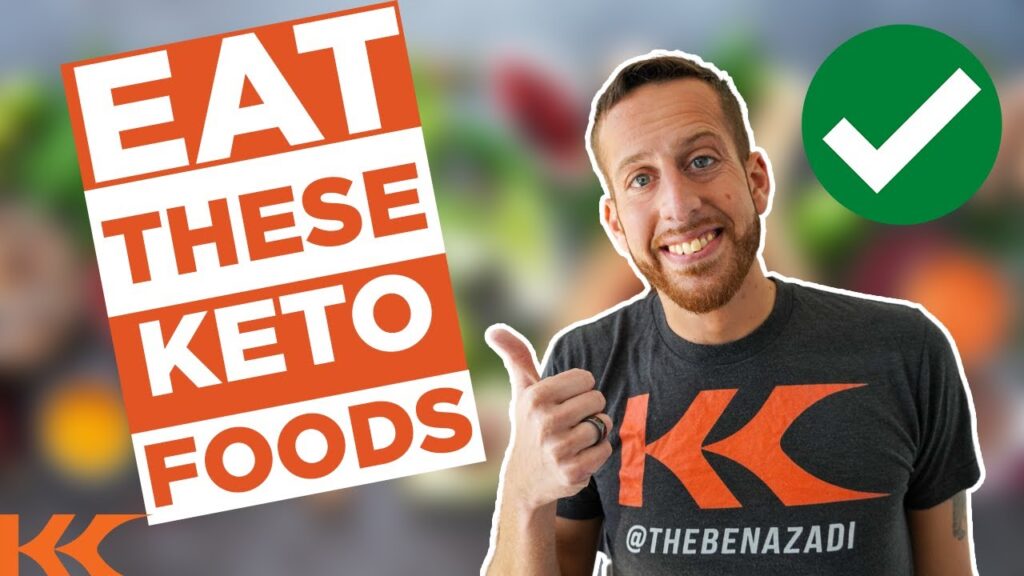
What are the foods that you could eat on the keto diet? It turns out, there’s a list of dirty keto foods that can actually increase inflammation, slow weight loss and even cause weight gain. Fortunately, we also have the list of clean keto foods that help you blast fat, feel good, and skyrocket your keto results. We're gonna to break it all down.
As the best selling author of four books & founder of Keto Kamp where our mission is to educate and to inspire 1 billion people, it is my duty to help you succeed in your health goals.
This is the second article in my ten-part series teaching you how to master keto for results that stick. So if you missed the first part, where we talked about how keto works at the cellular level, we talked about the history of keto and why keto is not a diet but a metabolic process, and so much more. (Here is a link to the first article) I do recommend you go through it because it lays out the framework for keto.
Here, we’re going to talk about the clean keto foods versus the dirty keto foods. Be sure to use this list of healthy keto foods, healthy keto sweeteners and the best way to cook those foods when you head to the grocery store in order to maximize your results
First, let’s talk about the best and healthiest ways to cook those foods. The best way to cook the foods is also the least way to cook the foods. In other words, we don't want to overdo it. We don't want to overcook our food. So the less you can cook food, the better it's going to be for you because you're going to mitigate against nutrients being lost. Some of the best styles of keto food preparation include, raw, lightly steamed, poached, simmered, boiled, lightly grilled but not charred, sous vide, slow cooking and pressure cooking.
Now, the worst way to cook your keto foods is to over cook your keto foods and you're going to do it with over boiling, barbecuing, burning the meat, blackening the meat, charring the meat, deep frying and microwaving. When you do that, you’re pretty much going to be left with dead carcass. When you eat burned keto meats it's going to create something called advanced glycation end products, which is going to actually age you faster, create more inflammation, and put a stop to your keto results. So let's stay away from these bad methods and stick with the good methods.
Now that we understand how to cook the foods. Let's talk about these dirty keto foods, the following foods that I'm going to present to you here if you have any of these keto friendly foods in your kitchen, in your cupboard for yourself for your kids, it's time to do an audit and remove them.
They're going to create massive amounts of inflammation, weight gain and weight loss resistance and lead to a lot of other symptoms. Yes, keep in mind, they're all keto friendly, yet they are not going to get you the right keto results that we want here.
So the worst offenders of them all are going to be the toxic eight, which are these vegetable oils that are everywhere. As I share each one of these eight oils, I want you to consider this, I interviewed Professor Brian Peskin, who's an MIT researcher. He was on the Keto camp podcast and we were talking about these nasty vegetable oils that a lot of people on keto are eating, and I asked him “Professor Peskin, what is worse for you, eating these cooked vegetable oils every single day on keto or smoking a cigarette every single day?” After looking at the research and he shared that a person who smokes two packs of cigarettes every single day for up to 28 years, their chances of developing lung cancer within those 28 years is about 16%. Then we compare that to somebody who had cooked vegetable oils every single day for about 28 years, their chances of developing cancer or heart disease was 86% Yikes!
Listen, I'm not advocating cigarette smoking, but I am saying we got to be really aware of these toxic eight vegetable oils because they're all keto friendly. They might get you in ketosis, but they're not going to get you the results you want. And here at keto camp, we focus on health at the cellular level.
So take note, these are the ones I want you to look out for in your keto bars, your keto foods, and when you go to restaurants and the grocery store. Canola oil, corn oil, cottonseed oil, soybean oil, safflower oil, sunflower oil, peanut oil, and grapeseed oil.
Those are the toxic eight right there, do an audit and remove them right away because here's the deal. Your body cannot use these toxic fats for energy they actually get stuck on your cell membrane’s receptor sites. Previously, I shared with you exactly how hormones and nutrients communicate with these receptor sites on your cells. But when you have inflammation, your fat burning hormones cannot deliver the message, causing weight gain, weight loss resistance and other symptoms to occur. Well, these oils create more inflammation than any other food in our diet, even more than sugar!
A study showed that cell membrane inflammation from these rancid fats, that your body cannot use for energy, can last up to 132 days! That is not good for your body. At least your body can burn sugar, unfortunately, it cannot burn these toxic fats. So I encourage you and I hope this inspires you to remove and/or avoid these fats.
Now that you understand more about the fats to avoid and these dirty keto foods, let's talk about the healthy clean keto foods. Save this information, take it to your grocery store, make the majority of your meals consist of this and you're going to get fat loss, you’re going to feel energetic and you're going to reduce inflammation and feel like a Keto Rockstar.
I love coconuts and coconut oil, avocados, avocado oil, pastured egg yolks are fantastic, they’re like Mother Nature's multivitamin, grass fed butter, grass fed ghee - delicious, which I actually put in my coffee. I have a video by the way, on the world's healthiest keto fatty cup of coffee in which I outlined the exact recipe (here is a link). I also love cacao butter, MCT oils, brain octane oil from bulletproof, I love extra virgin real olive oil, like my friends over at the fresh pressed olive oil club. They have the best olive oil I've ever tried.
Here’s a link for a special offer to get a $39 bottle of olive oil for just a $1
What about seeds and nuts and legumes on a keto diet? My favorite ones are going to be pecans, macadamia nuts, pili nuts, walnuts, sunflower seeds are fantastic, almonds in moderation are great and pine nuts.
What about the proteins? Well, here's my list of my favorite keto proteins. wild caught fish like trout, salmon, sardines and flounder - excellent, just make sure it's wild over farmed. Grass fed and grass finished beef or lamb, delicious, so good for your cells. Remember, don't overcook them. Also, colostrum collagen protein, bone broth if you can get a high quality bone broth like my friends over at Kettle & Fire, they make one of the best bone broth I've ever tried.
If you want to get their bone broth for 15% off, go to kettleandfire.com/ketokamp and use ketokamp at checkout for 15% off.
Bone broth is a great way to get some collagen and these specific amino acids that help line the gut and help you assimilate your keto fats even better. I also love pastured duck, pastured geese, hemp protein, and marine collagen. These are all fantastic, healthy keto approved foods.
It's also important to know which keto sweeteners are good for you and which keto sweeteners are going to actually be bad for you. So here is the list of my favorite keto sweeteners. I love erythritol, pure stevia, monkfruit and non GMO dextrose. Those are fine just make sure it's not leading to more cravings for sugar and carbs and you should be okay.
Now my least favorite keto sweeteners, which by the way are found in a lot of keto bars & protein shakes, require us to look at the ingredients. Here's a list of my non approved keto sweeteners. Xylitol, Maltitol, mannitol, sorbitol, asesullfame potassium, sucralose, aspartame, and saccharine. These sweeteners, yes, they're keto friendly, but they're actually going to create gut dysbiosis which might lead to more inflammation and you not being able to assimilate all the healthy fats you're having on keto, not good.
I've seen a lot of people who are not getting results on keto. When I asked them if they're consuming any of these ingredients, they do an audit, they find out they are, they remove it, boom, they break through a Keto plateau. So you're starting off now and you're going to understand this right from the start. You're going to be ahead of the Keto curve.
What about beverages? Well, my favorite keto beverages starts with Zevia as a great alternative to soda and diet soda. Zevia is a carbonated flavored soda but it's sweetened with stevia. You can find Zevia just about anywhere. Here’s a link for the one on Amazon. And of course, I like high quality water, organic shade grown coffee, and tea. Those are all great keto approved beverages for you.
Lastly, I'm going to share with you a principle, a rule if you will, that if you follow this 2,2,2,2 rule, it's going to help your body start utilizing your fat stores for fuel and help you become a fat burner instead of being a sugar burner.
So here's the 2,2,2,2 rule, which was developed by my mentor, Dr. Pompa. Starting out right now we want to make sure we're consuming two tablespoons of avocado oil or olive oil, two tablespoons of MCT oil or coconut oil, two tablespoons of grass fed butter or grass fed ghee, and finally, two teaspoons of sea salt.
Now the question I get asked all the time is, “do you consume this all in one sitting? It sounds like a lot of fat!” The answer is of course, no, It’s not all in one sitting. The goal is to consume it throughout the day. Think about the oils you're using to cook, with your salad dressings, your dips, that's all included. You want to consume that throughout the entire day. That's going to help start teaching your body to start utilizing fat and transitioning to burning fat instead of sugar, effortlessly. This 2,2,2,2 rule will make all the difference for your energy levels and your fat loss.
I have a question for you. What was your favorite keto food that I mentioned, was it the wild caught fish, the beef, the butter, the coconut oil, which is your favorite keto food - I want to know what your favorite keto food is. Drop a comment down below in the comment section to let me know.
You may be thinking, why did I include the sea salt in that 2,2,2,2 rule? Well, it is crucial to replenish your electrolytes on the ketogenic diet, especially since day one because it's going to help prevent things like the Keto flu. You might have heard all about the dreaded keto flu. Well guess what? In the next article in this series, I'm going to break down how to prevent the Keto flu how to replenish your electrolytes so you don't get brain fog. You don't feel like crap, but instead you feel like a Keto Rockstar.
If you'd like to watch the video version of this article, click the link below.

